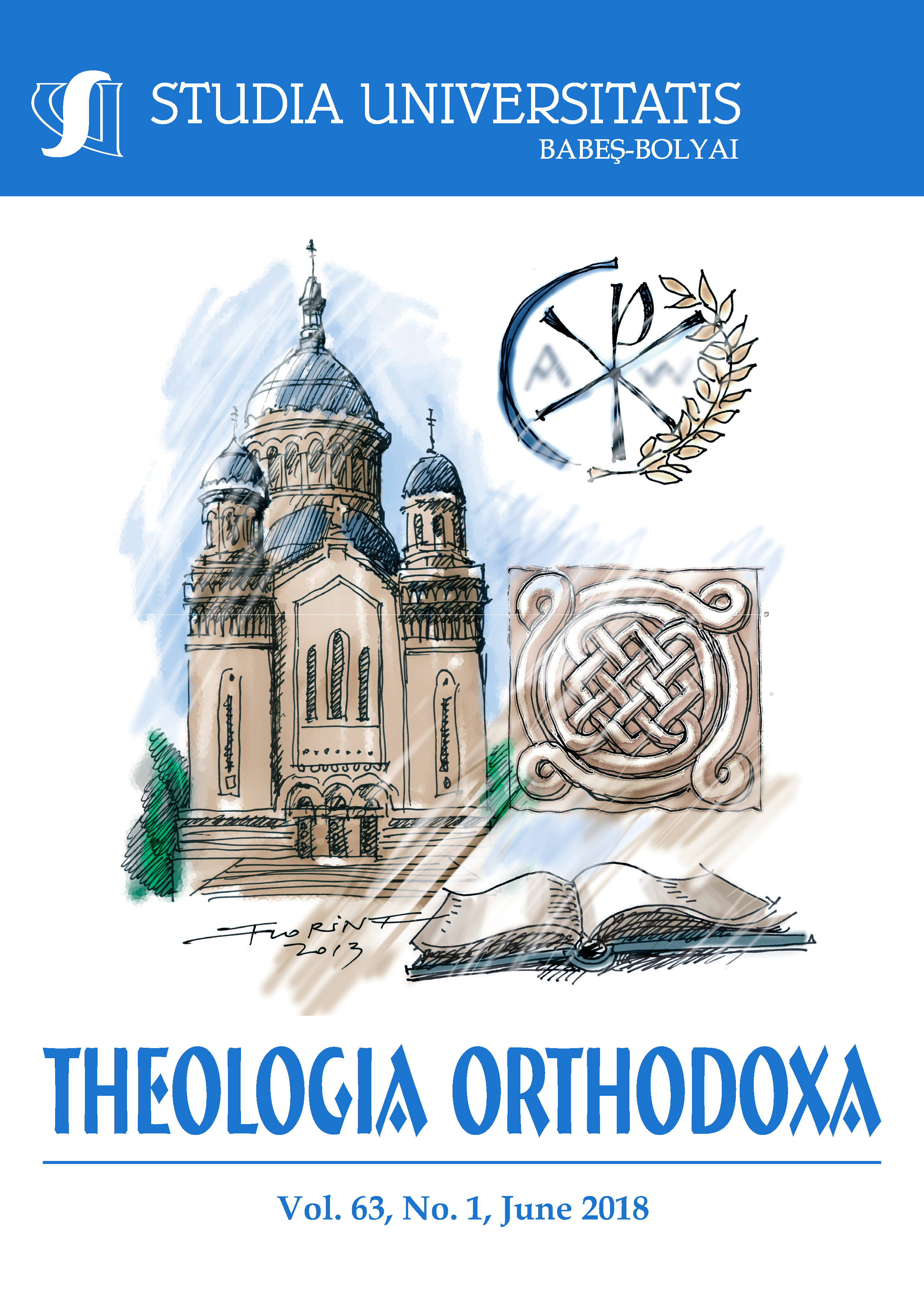THE RELIGIOUS POLICY OF EMPEROR HERACLIUS (610-641) IN REGARDS TO HEBREWS: PREMISES, ACCEPTANCE AND CONSEQUENCES
DOI:
https://doi.org/10.24193/subbto.2018.1.02Keywords:
religious policy, emperor Heraclius, Hebrews, conversion, baptismAbstract
Our study sets out to discuss the religious policy of Emperor Heraclius (610-641) in regards to Hebrews. Before the relic of the Holy Cross was reinstalled in Jerusalem (31 March 630), Emperor Heraclius's relations with the Hebrews do not seem to be tense. Starting with 630, Heraclius retaliates against the Hebrews as a punishment for their collaboration with the Persians, as well as for their involvement in the massacre of Christians when Jerusalem was conquered by the Persians (614). The Emperor issued an edict for the forced conversion of Hebrews to Christianity. The scope of this edict covered the entire Byzantine Empire, but it was only enforced in Cartagena (May 31, 632). Saint Maximus the Confessor condemns Heraclius's decision to forcibly convert Cartagena Hebrews to Christianity. Heraclius's decree was contested among the Hebrews. Their forced christening caused their migration to Persia. Also, Heraclius's anti-Hebrew policy determined them to facilitate the Arab expansion in Byzantine territories.
References
Bréhier, Louis, Aigrain, René. Histoire de l'Église depuis les origines jusqu’à nos jours, vol. V: Grégoire le Grand, les États barbares et la conquête arabe (590-757). Paris: Bloud et Gay, 1938.
Chronicon Paschale, vol. I. In “Corpus Scriptorum Historiae Byzantinae”, edited by Ludovicus Dindorfius. Bonn: 1832.
Dagron, Gilbert, Riché, Pierre, Vauchez André (eds.). Histoire du Christianisme des origines à nos jours, vol. IV: Évêques, moines et empereurs (610-1054). Paris: Desclée, 1993.
Dagron, Gilbert. “Introduction historique. Entre histoire et apocalypse.” In Juifs et Chrétiens en Orient byzantin, edited by Gilbert Dagron, Vincent Déroche, 17-46. Paris: Association des amis du Centre d’histoire et civilisation de Byzance, 2010.
Dagron, Gilbert. “Commentaire. I. Le scénario et ses ancrages historiques.” In Juifs et Chrétiens en Orient byzantin, edited by Gilbert Dagron, Vincent Déroche, 230-247. Paris: Association des amis du Centre d’histoire et civilisation de Byzance, 2010.
Dagron, Gilbert. “Judaïser.”, In Juifs et Chrétiens en Orient byzantin, edited by Gilbert Dagron, Vincent Déroche, 359-380. Paris: Association des amis du Centre d’histoire et civilisation de Byzance, 2010.
Déroche, Vincent. “Commentaire II. Les intentions de l’auteur.” In Juifs et Chrétiens en Orient byzantin, edited by Gilbert Dagron, Vincent Déroche, 248-274. Paris: Association des amis du Centre d’histoire et civilisation de Byzance, 2010.
Devreesse, Robert. “La fin inédite d’une lettre de saint Maxime: une baptême forcé de Juifs et de Samaritains à Carthage, en 632.” Revue des Sciences Religieuse, no. 17/1, (1937): 25-35.
“Doctrina Jacobi nuper baptizati. ” Édition et traduction par Vincent Déroche. In Juifs et Chrétiens en Orient byzantin, edited by Gilbert Dagron, Vincent Déroche, 47-274. Paris: Association des amis du Centre d’histoire et civilisation de Byzance, 2010.
Griffith, Sidney H., s.v. “Eutychios of Alexandria.” In The Oxford Dictionary of Byzantium, vol. 2, edited by Alexander P. Kazhdan, Alice-Mary Talbot, Anthony Cutler, Timothy E. Gregory, Nancy P. Ševčenko, 760. New York, Oxford: Oxford University Press, 1991.
Jean, évêque de Nikiou. Chronique In “Notices et extraits des manuscrits de la Bibliothèque Nationale,” XXIV, 1re partie, texte éthiopien publié et traduit par H. Zotenberg. Paris: Imprimerie Nationale, 1883.
Lemerle, Paul, ed. Les plus anciens recueils des miracles de Saint Démétrius et la pénétration des slaves dans les Balkans, vol. I. Paris: Éditions du Centre National de la Recherche Scientifique, 1979-1981.
Maxime le Confesseur. Lettres. Introduction par Jean-Claude Larchet, traduction et notes par Emmanuel Ponsoye, coll. Sagesses chrétiennes. Paris: Les Éditions du Cerf, 1998.
Allen, Pauline and Bronwen Neil, eds. and trans. Maximus the Confessor and his Companions. Documents from Exile. Oxford Early Christian Texts. Oxford: Oxford University Press, 2002.
Meyendorff, Jean. Unité de l’Empire et divisions des Chrétiens. L’Église de 450 à 680. Traduction de l’anglais par Françoise Lhoest revue par l’auteur. Paris: Les Éditions du Cerf, 1993.
Michel le Syrien. Chronique, vol. II. Éditée pour la première fois et traduite en français par J.-B. Chabot. Paris: Ernest Leroux Éditeur, 1901.
Migne, Jacques-Paul, ed. Patrologia Graeca; Patrologiae cursus completus, series graeca, 111. Paris: 1863.
Ostrogorski, Georgije. Histoire de l’État byzantin. Paris: Payot, 1996.
Pseudo-Sébéos. Histoire d’Héraclius. Traduite de l’arménien et annotée par Frédéric Macler. Paris: Ernest Leroux Éditeur, 1904.
Rus, Remus. Dicţionar enciclopedic de literatură creştină din primul mileniu. Bucureşti: Editura Lidia, 2003.
Sfântul Maxim Mărturisitorul (580-662) și tovarășii săi întru martiriu: papa Martin, Anastasie Monahul, Anastasie Apocrisiarul. „Vieți” – actele procesului – documentele exilului. Traducere și prezentare diac. Ioan I. Ică jr. Sibiu: Deisis, 2004.
Sophocles, E. A. Greek Lexicon of the Roman and Byzantine Periods (from B. C. 146 to A.D. 1100). Cambridge: Harvard University Press. 1914.
Theophanes. The Chronicle. English translation of anni mundi 6095-6305 (A.D. 602-813), with introduction and notes by Harry Turtledove. Philadelphia: University of Pennyslvania Press, 1982.
Downloads
Published
How to Cite
Issue
Section
License
Copyright (c) 2018 Studia Universitatis Babeș-Bolyai Theologia Orthodoxa

This work is licensed under a Creative Commons Attribution-NonCommercial-NoDerivatives 4.0 International License.





 ISSN (print): 1224-0869, ISSN (online): 2065-9474, ISSN-L: 2065-9474
ISSN (print): 1224-0869, ISSN (online): 2065-9474, ISSN-L: 2065-9474